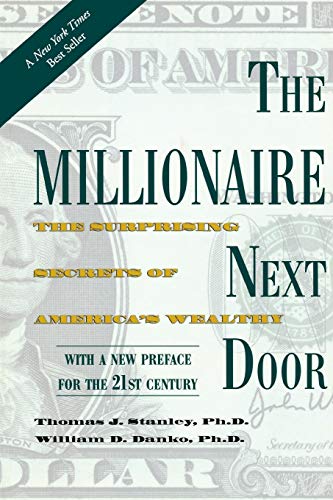Financial independence is defined as having the freedom to do what you want, when you want. Being financially independent means you don’t have to work.
Any work you have to do will not seem like work or interfere in your daily life. Financial independence and early retirement are possible, if you have access to the right resources and you’re able to take the necessary steps.
To become financially independent, you have to have great self discipline. It’s certainly not easy, but anything that is easy to get isn’t cherished, and if it was easy, everyone would be dong it.
If you’re willing to do what it takes, here are the best books on retiring early, taking care of your personal finances and achieving financial independence.
1. Your Money Or Your Life by Ricky Robin
In Your Money or Your Life, money is introduced from a refreshingly new perspective. The book argues that you are currently making a “dying”, as opposed to making a “living”.
A 9-step process is introduced to get you back on track toward living a fulfilled life through smart spending and financial independence.
2. The Millionaire Next Door: The Surprising Secrets Of America’s Wealthy by Thomas J. Stanley
(As featured in How To Become Rich: 5 Top Books For Wealth Creation and Success)
Creating wealth is sort of like dieting. Everybody wants the end result but the discipline to achieve that result is usually lacking.
Through research into U.S. households with a net worth of $1 million or more, authors Thomas J. Stanley and William D. Danko identify that most individuals have a low net wealth compared to their income. They then provide advice to help people achieve a higher net worth compared to their income.
3. The Money Book For The Young, Fabulous & Broke
How many people graduate from high school and even college without knowing the basics of financial literacy?
Deciphering credit ratings, maintaining and balancing a bank account, getting through college with a minimum of student debt, making the most of that first job and, eventually, buying a home and planning for retirement?
Orman strives to close this “financial illiteracy” gap by providing invaluable info for those just starting out.
4. I Will Teach You To Be Rich by Ramit Sethi
Ramit starts with the premise that most people are so overwhelmed by the sheer amount of financial information available that they just shut down and do nothing.
So Ramit tells you exactly what to do with your money and why, if you want to gain that illusive financial independence.
5. A Random Walk Down Wall Street by Burton G. Malkiel
Burton Malkiel’s A Random Walk Down Wall Street is well known to be one of the modern classics on stock investing. It explains how investors make the same mistakes over and over again, and how you can avoid those mistakes.
If you want to understand how the stock market works, and decide for yourself if you should be investing in index mutual funds or picking stocks. This book is a must-read.
6. The Total Money Makeover by Dave Ramsey
If you’re looking for a motivational book when it comes to your personal finances, this is the one!
It’s fun, informative and actually has follow up books if you wish to read more.
7. The Richest Man In Babylon by George Clason
(As featured in How To Become Rich: 5 Top Books For Wealth Creation and Success)
This book is a series of parables about money written in the 1920s by George Clason. They were written as individual essays of a few thousand words, but the theme throughout them is consistent. Which is save 10% of your money, give 10% away, use 10% to reduce your debt load, and live on the remaining 70%.
The book also insists that charitable giving is important, provided you don’t allow those two whom you give to become dependent upon your gifts.
8. Rich Dad Poor Dad: What the Rich Teach Their Kids About Money by Robert T. Kiyosaki
Rich Dad Poor Dad is the very best book available for those who want to become wealthy or at the very least, attain a moderate level of financial independence.
Sequels like Cashflow Quadrant continue the learnings.
9. How Much Money Do I Need to Retire? by Todd R. Tresidder
Before anyone can retire early confidently, they need to know their individual retirement number.
How Much Money Do I Need to Retire? by Todd Tresidder covers topics other conventional retirement planning books don’t. Which include the flaws in most retirement calculators, how to accurately save for your lifestyle and how to ensure you don’t outlive your savings. Plus, it takes a deep dive into retirement planning from 3 separate models, not just the traditional model most financial planners use.
Author Todd Tresidder points out the risk you may be missing in your current retirement plan and gives you workable strategies to correct them. Tresidder is a former hedge fund manager and has helped thousands find financial freedom through his books, podcast and website, the FinancialMentor.com
Reading these books wont guarantee you financial independence, but if you take the action, they will lead you down the right path.









